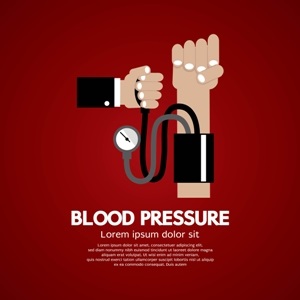
People with type 2 diabetes who get treatment for high blood pressure live longer and have a lower risk of heart disease, according to a new review.
But to the researchers' surprise, diabetics with only slightly high blood pressure – higher than the healthy range but not quite in the hypertension range – didn't get as much benefit from treatment.
"Everything else being equal," the patients with type 2 diabetes most likely to benefit from blood pressure lowering are those whose blood pressure is higher, said co-author Professor Kazem Rahimi of The George Institute United Kingdom and The University of Oxford, in an email to Reuters Health.
The review included 40 trials from 1966 to 2014 on blood pressure lowering treatments in more than 100,000 people with type 2 diabetes. The treatments included diuretics (sometimes called "water pills"), ACE inhibitors, and other drugs.
A healthy blood pressure reading is 120/80 millimetres (mm) of Mercury (Hg).
'Pre-hypertension'
Readings above 120/80 but below 140/90 indicate "pre-hypertension". Blood pressure above 140/90 mm Hg can be diagnosed as hypertension.
Read: Diabetes and the heart
According to the new review, with every decrease of 10 mm Hg in the first number – the systolic blood pressure – the risk of dying during the study decreased by about 10 percent, and the risk of an acute heart problem, heart disease, stroke and diabetic retinopathy also went down.
Lowering blood pressure appeared to carry the most benefit for people whose initial systolic readings were higher than 140 mm Hg, the authors write in JAMA.
"The study calls for more individualised treatment decisions when it comes to controlling blood pressure in people with type 2 diabetes, in particular for diabetics with lower baseline blood pressure levels," Rahimi said.
Blood pressure medications did decrease the risk of other problems like stroke, diabetic eye disease and excess protein in the urine, even for people with relatively lower blood pressures, he said.
But diuretics can cause an increase in blood sugar for people with diabetes. Other side effects of blood pressure medications include impotence, potassium deficiency, skin rash or kidney damage.
One in 10 Americans has diabetes today, most often type 2, the adult-onset kind, according to the Centres for Disease Control and Prevention. Two out of three people with diabetes have high blood pressure or take medication to lower it, according to the American Diabetes Association.
Goals have been relaxed
"People with a blood pressure of 140 or higher are likely to enjoy the greatest benefit from blood pressure lowering, and for most, the benefits of taking blood pressure medication are likely to outweigh the potential side effects," Rahimi said. "In people with systolic blood pressure below 140 mm Hg, treatment recommendation requires more careful assessment of the patient's likely absolute net benefit."
Based on one U.S. trial in 2010, blood pressure goals have been relaxed for people with diabetes, which may have been an overreaction, according to Dr. Bryan Williams of University College London, who wrote an accompanying editorial in the journal.
Before that trial, most guidelines recommended that people with diabetes keep their blood pressure below 130/80 mm Hg. Afterward, some guidelines were relaxed to 140/90 mm Hg.
Read: Causes of hypertension
Rahimi's study "shows that the current BP goals are not low enough to optimally reduce the risk of stroke, for example," Williams told Reuters Health by email.
"Certainly BP should be lowered to below 140/90 mm Hg and I would suggest it would be appropriate to go lower than 130/80 if the patient will tolerate it and this is more likely to be tolerated better in younger people," he said.
"There is no magical threshold above which blood pressure suddenly becomes harmful and below which it becomes benign," Williams said. "The thresholds are designed to simplify trials and guidance but in reality the risk relationship is continuous with no obvious threshold."
SOURCE: http://bit.ly/1zqAt0K JAMA, online February 10, 2015.
Read more:
How potassium fights high blood pressure
Blueberries may help to control blood pressure
Image: Blood pressure from Shutterstock




 Publications
Publications
 Partners
Partners















